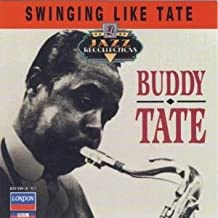
Daily Dose Of Jazz…
Skip Hall was born Archie Hall on September 27, 1909 in Portsmouth, Virginia and studied piano under his father. He lived in New York from age eight and in the late twenties, he relocated to Cleveland, Ohio where he led his own band for most of the 1930s.
He worked as an arranger on contract, arranging for Jay McShann from 1940 to 1944. During World War II he played with Don Redman and in 1943 he entered military service and played in a band while stationed in England.
He would eventually work with Hot Lips Page around the year 1945 and then joined the Sy Oliver band, who was his brother-in-law. Following this he worked with Wynonie Harris, Thelma Houston, and Jimmy Rushing before joining Buddy Tate’s group in 1948. He worked with Tate for twenty years both as a performer and arranger.
In the 1950s and 1960s, he performed with Dicky Wells, Emmett Berry, and George James, as well as working solo and with his own small groups. Arranger, pianist, and organist Skip Hall passed away in November 1980, Ottawa, Ontario, Canada.
More Posts: arranger,bandleader,history,instrumental,jazz,music,organist,pianist
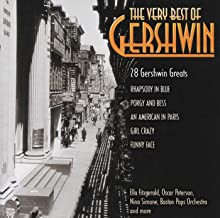
Daily Dose Of Jazz…
George Gershwin was born Jacob Bruskin Gershowitz on September 26, 1898 in Brooklyn, New York. When his parents bought his older brother Ira a piano, it was the younger George who spent most of his time playing it. He studied piano under Charles Hambitzer and composition with Rubin Goldmark, Henry Cowell, and Joseph Brody.
He began his career as a song plugger but soon started composing Broadway theater works with his brother Ira Gershwin and with Buddy DeSylva. In 1919 he scored his first big national hit with his song Swanee, with words by Irving Caesar.
In the late 1910s, Gershwin met songwriter and music director William Daly and the two collaborated on the Broadway musicals Piccadilly to Broadway in 1920 and For Goodness’ Sake in 1922, and jointly composed the score for Our Nell the following year. This was the beginning of a long friendship and collaboration as Daly was a frequent arranger, orchestrator, and conductor of Gershwin’s music.
Moving to Paris, France intending to study with Nadia Boulanger. Refusing him, he subsequently composed An American in Paris, before returning to New York City and writing Porgy and Bess with Ira and DuBose Heyward. Unfortunately for them, it was initially a commercial failure, however, years later it came to be one of the most important American classic operas of the twentieth century.
After the commercial failure of Porgy and Bess, George moved to Hollywood, California. In 1936, with a commission from RKO Pictures, he wrote the music for the Fred Astaire/Ginger Rogers film Shall We Dance. His extended score, which would marry ballet with jazz in a new way, runs over an hour in length. It took Gershwin several months to compose and orchestrate.
Gershwin had a ten-year affair with composer Kay Swift, whom he frequently consulted about his music. The two never married, but he titled his 1926 musical Oh, Kay for her. His compositions have been adapted for use in film and television, with several becoming jazz standards recorded and covered in many variations.
Composer and pianist George Gershwin, whose compositions spanned both popular and classical genres, passed away at 38 from a malignant brain tumor on July 11, 1937 in Los Angeles, California.
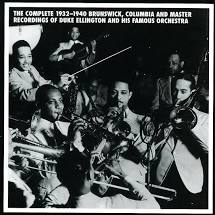
Daily Dose Of Jazz…
Charlie Allen was born on September 25, 1908 in Jackson, Mississippi and grew up in Chicago, Illinois and in the early 1920s just out of high school began playing. In 1925 he was a member of the band led by Hugh Swift, then went on to play with Dave Peyton and Doc Cook in 1927, and Clifford King in 1928 and Johnny Long by the end of the decade.
Allen joined Earl Hines from 1931 to 1934, then did a short stint in Duke Ellington’s orchestra in 1935, though he never recorded any solos with the orchestra. He would play with Fletcher Butler in 1936 and then returned to play with Hines again in 1937.
Charlie played in various groups in Chicago in the 1940s and 1950s and later in his life became a music educator, working in the Chicago Musicians’ Union. He also designed custom trumpet mouthpieces, used by Cat Anderson, among others. Trumpeter Charlie Allen passed away on November 19, 1972 in Chicago, Illinois.
More Posts: history,instrumental,jazz,music,trumpet
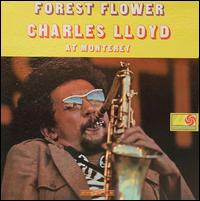
The Quarantined Jazz Voyager
The Quarantined Jazz Voyager continues to social distance and in doing so continues to listen to some of the greatest recordings of the 20th century. This week the spotlight is on Forest Flower: Charles Lloyd at Monterey. It was recorded on two separate dates: in~studio in New York City on September 8, 1966, tracks 3 & 4, and live on September 18, 1966 at the Monterey Jazz Festival in Monterey, California. The album was produced by George Avakian and released on Atlantic Records on February 21, 1967.
Track Listing | 39:17- Forest Flower: Sunrise (Lloyd) ~ 7:18
- Forest Flower: Sunset (Lloyd) ~ 10:37
- Sorcery (Keith Jarrett) ~ 5:18
- Song of Her (Cecil McBee) ~ 5:24
- East of the Sun (Brooks Bowman) ~ 10:40
- Charles Lloyd – tenor saxophone, flute
- Keith Jarrett – piano
- Cecil McBee – bass
- Jack DeJohnette – drums
More Posts: adventure,club,genius,jazz,museum,music,preserving,restaurant,saxophone,travel,voyager
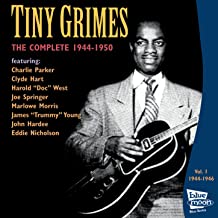
Daily Dose Of Jazz…
Jimmy Butts was born on September 24, 1917 in New York City, New York. Early in his career, he played with local groups Dr. Sausage and His Pork Chops and Daisy Mae’s Hepcats. Early in the 1940s, he played in the orchestras of Les Hite and Chris Columbus. He accompanied Frances Brock on USO tours during World War II.
In the 1940s Jimmy played with Don Redman, Art Hodes, Lem Johnson, Tiny Grimes, and Noble Sissle. Late in the decade he played in a duo with Doles Dickens and formed his own ensemble, which continued into the early 1950s.
The 1960s had Butts emigrating to Canada and playing with Juanita Smith. In the 1970s returning to New York City, he played with his own small group, working almost up until his death.
Double-bassist Jimmy Butts passed away on January 8, 1998 in New York City. His band remained together under the name Friends of Jimmy Butts after his death.
More Posts: bass,history,instrumental,jazz,music



